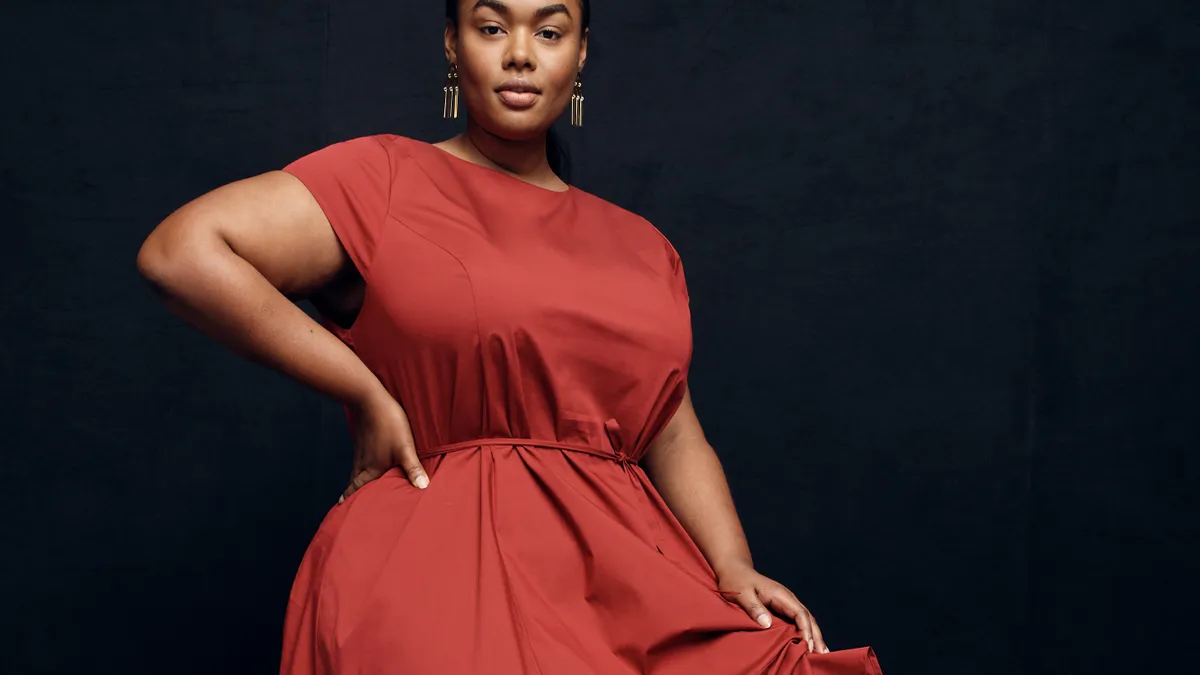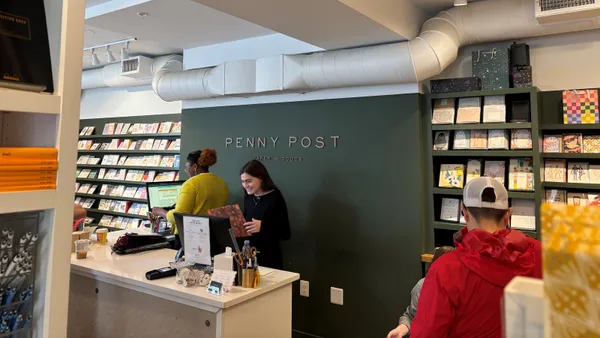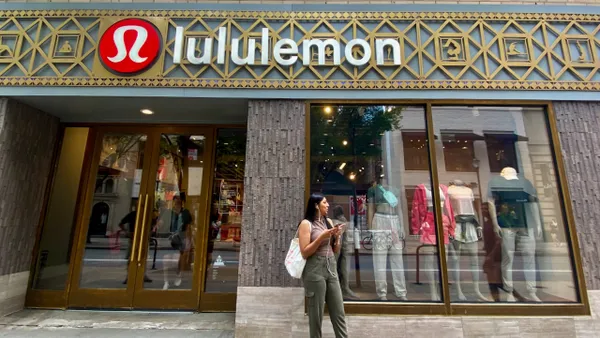Dive Brief:
-
J. Crew on Tuesday unveiled a collection with Universal Standard, a women’s apparel brand specializing in inclusive sizes, for summer and fall.
-
The apparel line — which includes a range of tops, dresses, skirts and pants — will be available in sizes up to 5x, according to a company press release emailed to Retail Dive.
-
Four years ago, J. Crew was slammed for its attention to skinny sizes after it unveiled a triple zero, which the company then said was in response to demand in its Japan market.
Dive Insight:
J. Crew has acknowledged that this level of inclusivity in its apparel sizes is "long overdue." In a press release, the retailer said its collaboration with Universal Standard will in part be an exercise in how to develop apparel for women of all sizes.
J. Crew Chief Merchandising Officer Lisa Greenwald said in a statement that the collection "kicks off a much larger roll out of extended sizes, new fits and fabrications across the brand." She added, "We’re on a mission to make great style available to everyone."
The Universal Standard partnership could help accelerate that effort. The brand employs a technical approach to "micrograding" by size "to ensure that each design is tailored for the real, diverse spectrum of the American woman," J. Crew said.
The iconic apparel retailer didn't always seem so inviting. The brand was under fire a few years ago for releasing smaller-than-ever sizes. Although it's offered extended sizes for a while since, that hasn't been obvious. By contrast, several observers noted (and welcomed) the Universal Standard tie-up, with headlines like "finally" and comments on social media.
Universal Standard has a line at J Crew???? Am I about to walk into a J Crew for the first time in my fat life????
— Ashley Nicole Black (@ashleyn1cole) July 10, 2018
J. Crew's flagship is struggling and needs to tap the potential of this largely neglected segment, which in 2015 accounted for 17% of U.S. women's apparel sales, according to the NPD Group, with U.S. sales of special sizes (plus-size/full-figure, petite plus, and junior plus sizes), rising 3% in the 12 months ending February 2016 to $20.4 billion.
The inclusive market, meanwhile, covers an even larger segment of the population: Two-thirds of U.S. females consider themselves to be a special size, meaning, plus, petite, junior or tall, according to NPD Group's Consumer Tracking Service. One-third of females identify as plus-size, the same study notes. NPD has also found that U.S. teens purchasing in the junior size category dropped from 81% in 2012 to 73% in 2015, while teens purchasing plus-size clothing is now 34%, compared to 19% in 2012.
And that's really what shoppers want, according to research from Jane Hali & Associates. Women of all sizes simply want to be able to shop for apparel anywhere, and find items in a range. That could be an advantage to mainstream retailers like Nordstrom and Target, which Hali says are making strides in such efforts. Nordstrom last year expanded its denim sizing to range from 00-24W and just this week announced it is bringing extended sizing to 30 stores. And Target is now featuring inclusive sizes and displaying plus size mannequins next to regular size ones for its new apparel labels.
"The plus-size divisions are in trouble because research has shown that this customer does not want to feel isolated and shop in a store devoted to plus size," Hali told Retail Dive earlier this year.














